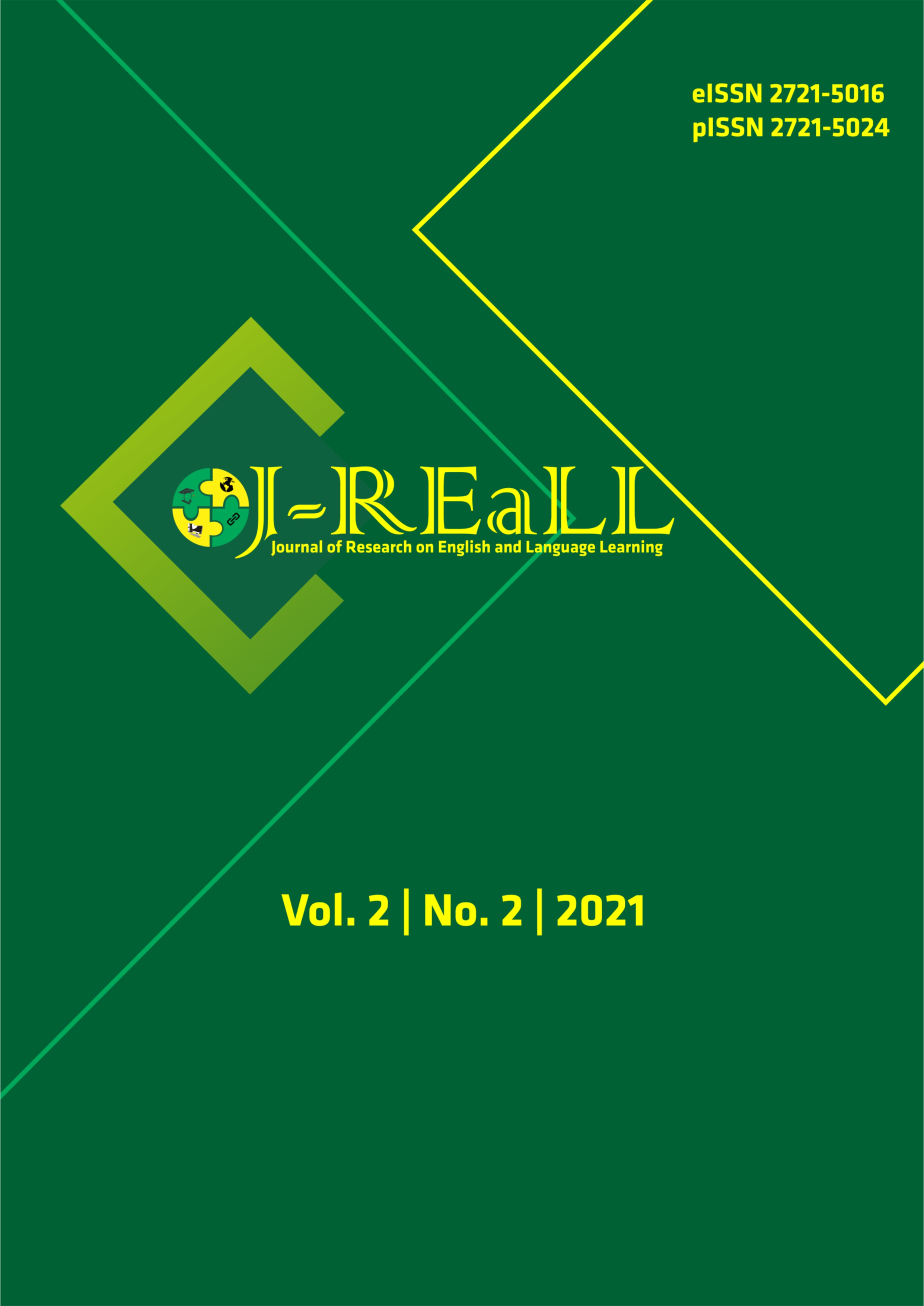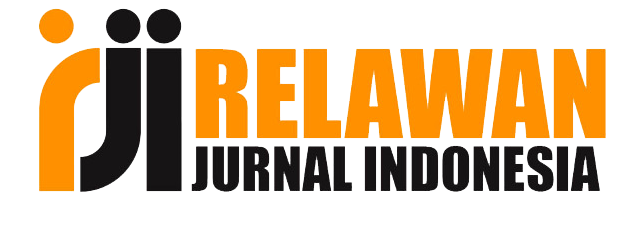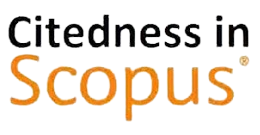Metacognitive writing strategies for vocational high school students
DOI:
https://doi.org/10.33474/j-reall.v2i2.11435Keywords:
metacognition, metacognitive writing strategies, students’ performance, writingAbstract
English writing task for students is considered as the most complex task since they need to combine all English skills on writing construction. Metacognition, the highest order thinking, has to be in writing strategies (planning, monitoring, evaluating). The students who use their metacognition can know which effective writing strategies on doing their writing task. This research aims to elaborate on whether there are significant differences between high and low achievers in writing in using metacognitive writing strategies or not. The researcher selects the Ex-Post Facto research and two instruments; (1) writing test - descriptive text to differentiate between high and low achievers in writing (2) questionnaire - to identify the most and the least uses of metacognitive writing strategies. With the Independent T-test for analyzing the data, the findings are. (1) The uses of metacognitive writing strategies and students' writing performance are not significantly different. The mean of each strategy had been compared to the mean of students' performance; moreover, based on the statistical analysis at SPSS, it shows no significant difference. (2)The most used strategy by high and low achievers in writing is planning while the least used strategy is monitoring. From these findings, the null hypothesis is accepted. Although there were no significant differences in the uses of metacognitive writing strategies between high and low achievers in writing, the students have already known effective writing strategies that can improve their writing.
References
Binandeh, M., Rahmani, S., & Raoofi, S. (2017). An Investigation into Writing Strategies and Writing Proficiency of University Students. Journal of Language Teaching and Research, 8(1), 191-198.
Jaleel, S. Premachandran, P. (2016). A Study on the Metacognitive Awareness of Secondary School Students. Universal Journal of Educational Research, 4(1), 165-172.
Limpo, T, Alves, R. A. (2018). Effects of planning strategies on writing dynamics and final texts. Acta Psychologica, 188, 97-109.
Mohite, M. (2014). An Investigation into the English Language Writing Strategies Used by Polish EFL Secondary School Learners. London: British Council ELT Master's Dissertation Awards: Commendation.
Wang, Z., & Han, F. (2017). Metacognitive Knowledge and Metacognitive Control of Writing Strategy between High- and Low-performing Chinese EFL Writers. Theory and Practice in Language Studies, 7(7), 523-532.
Yunardi. (2014). Sistem Pendidikan di Thailand. Kantor Atase Pendidikan, Kedutaan Besar Republik Indonesia (KBRI) Bangkok.
Downloads
Published
How to Cite
Issue
Section
License
Copyright (c) 2021 Imas Masyithoh, Eko Suhartoyo

This work is licensed under a Creative Commons Attribution 4.0 International License.
Authors who publish this journal agree to the following terms:
- Authors retain copyright and grant the journal right of first publication with the work simultaneously licensed under a Creative Commons Attribution License that allows others to share the work with an acknowledgement of the work's authorship and initial publication in this journal.
- Authors can separately make additional contractual arrangements for non-exclusive distribution published by the journal (e.g., publish it in a book), with an acknowledgement of its initial publication in this journal.
- Authors are allowed and encouraged to send their work via online (e.g., in the institutional repositories or their website) after published by the journal.






















